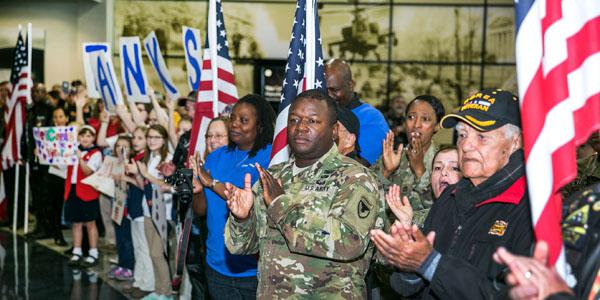Using Data for Good
In 2016, big data software company Splunk promised to donate a minimum of $100 million in software licenses, training, support and education to nonprofit organizations and educational institutions over the next 10 years. The company’s Splunk4Good initiative supports nonprofit organizations, academic research and social improvements.
The company first started serving a few smaller nonprofits, researchers and academia, Corey Marshall, director of Splunk4Good, explained in an interview with SIGNAL Magazine. Now they have an ambitious plan to expand to all nonprofits no matter what the size or global location. To Marshall, the efforts go beyond the scope of a traditional corporate social responsibility (CSR) program. The company combines the traditional aspects of a CSR—volunteerism and employee engagement—with programs designed to make a definitive impact on organizations.
Splunk4Good is partnering with organizations at the local, state and federal levels, and worldwide to leverage data. “We are explicitly including 501(c)3 organizations and (c)19—veterans’ service organizations,” Marshall said. “That actually fits very nicely into work we’ve been doing in other areas. After we made our announcement last year, we had all kinds of organic interest from folks that are working with veterans in work force training and development and integrating Splunk into their curriculum. We had not anticipated that.”
In work force development, they are partnering with NPower, Wounded Warrior Project (WWP), Year Up and AWS re:Start, among others, to help train military veterans for technology-related careers. For WWP in Jacksonville, Florida, which serves warriors across the U.S. with all types of injuries, Splunk4Good’s involvement came from the suggestion of some of their customers in the area who had existing partnerships with WWP. WWP’s Warriors to Work initiative, a job skills training initiative and resource network, was a natural partnership, according to Marshall.
“We have spun up a shared portal with them that gives them access to Splunk software,” he said. The veterans use a third party partner (ID.me) to validate their identity, which provides a simple user experience—as opposed to having to go back and forth with forms to the U.S. Department of Veterans Affairs. The single port of entry provides them access to Splunk’s first level of training programs. “This gets them to a certificate level that all of our customers know and recognize,” Marshall said. “So they will be eligible for any of the thousands of Splunk-related jobs at companies or public sector.”
A similar program with NPower, which provides job skills and technical training for veterans, leads to internships. “If we can put these pieces together, I think we can improve the ability to meet their needs as well as create opportunities for these veterans looking to turn the corner,” Marshall said.
Splunk4Good is also looking to make an impact through data usage with other types of organizations, such as those with a humanitarian focus. For instance, the Global Emancipation Network (GEN) works to combat human trafficking and NetHope works with 50 of the largest humanitarian non-governmental organizations to pair them with technology innovators. GEN originally came to Splunk for licensing capabilities, but after understanding GEN’s efforts and what they were trying to accomplish, Marshall said, they saw an opportunity to make more of a difference.
“GEN is trying to be a point of data aggregation on human trafficking from all different places, either scrapping data from the dark web or pulling in data from other NGO partners, public safety and law enforcement agencies,” Marshall said. “Using a tool like Splunk is invaluable to them because you encounter the same types of data silos in that space that you do elsewhere. They are fighting the battle on access to data and we can help them on the technology front.”
“They bring the data and we build data structures to help them improve their operational posture and impact the way they are doing business,” he added. “We are making use of information and resources to help predict when folks are going to need help or when they are going to be at risk. It is one of those things that is potentially game changing in terms of how people think about human trafficking and how you can use data to help law enforcement or rescue efforts.”
Team Rubicon Global, a Washington, D.C.-based nonprofit that provides veterans around the world an opportunity to serve others during disasters, is also looking to improve its operations through big data management.
We are looking at core use case areas including operations management and security, and how we can extend that functionality into their daily operations, including field deployment of thousands of people in lots of different locations,” Marshall noted. “We are working with them to figure out how we can inform their data, whether it is through their satellite communications network or helping them have better insights into where their people are stationed because they are often in conflict or disaster zones.”
In the future, this may include using data tools to track folks’ vital signs during operations, Marshall said.





Comments